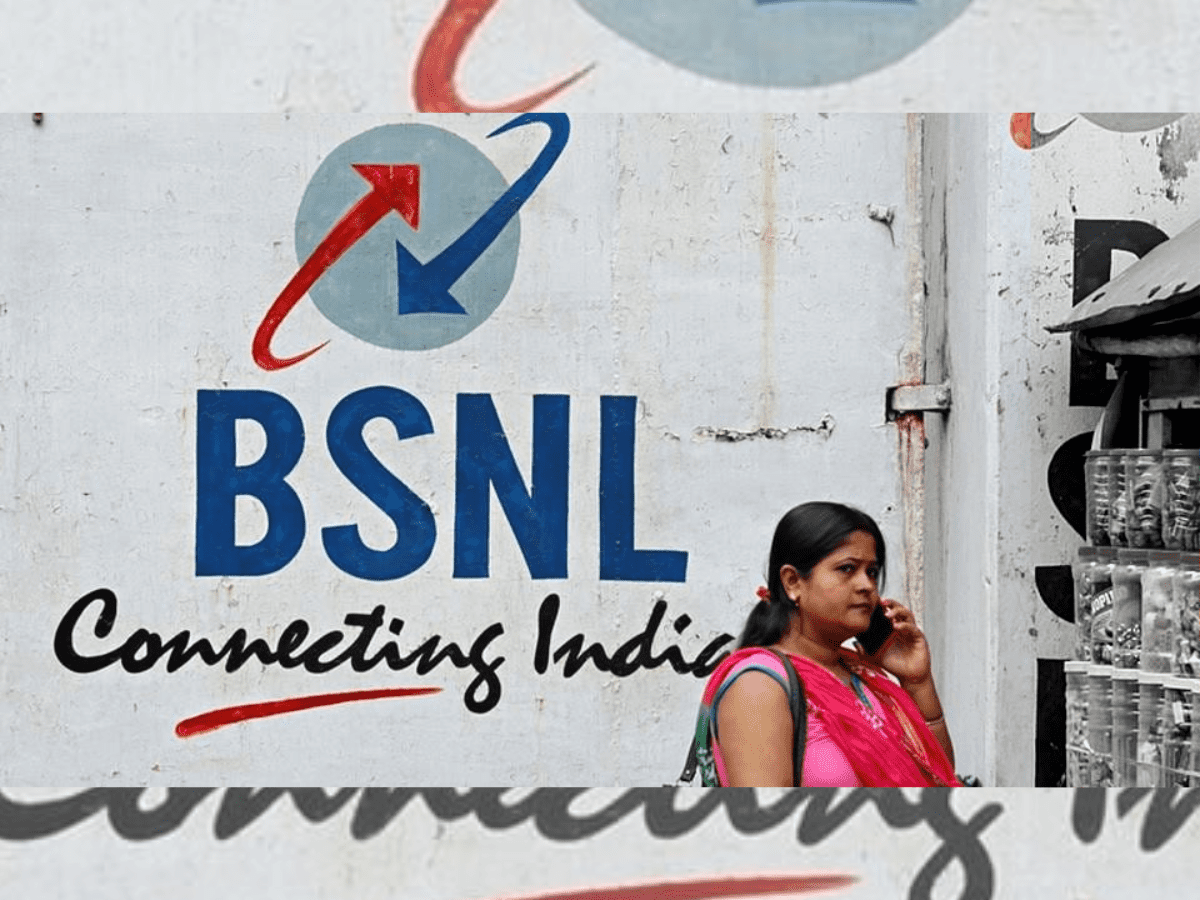Govt extends Rs 1.64 lakh cr lifeline to BSNL

- With BSNL rapidly losing market share to private rivals, the state firm would have gone into a deep sink if government support was not provided to upgrade technology and services to match the competition.
New Delhi: The government on Wednesday approved a Rs 1.64 lakh crore revival package for BSNL, comprising of converting dues into equity, financial support and allocation of spectrum in a bid to turn around the loss-making telecom PSU.
Also, Bharat Broadband Network Ltd (BBNL) – the firm that created a fibre network called BharatNet – will be merged with BSNL to boost its infrastructure and support telephony services, Telecom and IT Minister Ashwini Vaishnaw told a news conference here.
“We are committed to strengthening BSNL,” he said.
Telecom is a strategic sector where the government is committed to supporting BSNL.
“The first boost to it came from the 2019 revival package that made BSNL a stable entity and post that, it has made operating profits. With today’s revival package of Rs 1,64,156 crore, BSNL will become a viable entity,” he said.
The revival measures focus on fresh capital for upgrading services, allocating spectrum, de-stressing its balance sheet and augmenting its fibre network by BBNL with BSNL, he said, adding the package has a cash component of Rs 43,964 crore and a non-cash component of Rs 1.2 lakh crore spread over four years.
“Previous package of Rs 74,000 crore in 2019 gave a good lifeline to BSNL. As a direct result, that began generating operating profit (Rs 1,000 crore). Now to make it a viable company, the financial restructuring has to be done,” he said. “Today’s decision will help make BSNL sustainable.”
With BSNL rapidly losing market share to private rivals, the state firm would have gone into a deep sink if government support was not provided to upgrade technology and services to match the competition.
The Union Cabinet headed by Prime Minister approved an allocation of 900/1800 MHz band spectrum worth Rs 44,993 crore to support 4G services to BSNL, which has skipped participation in recent auctions of airwaves.
This allocation, he said, will allow BSNL to compete in the market and provide high-speed data.
For technology upgrades, the government will fund a capex of Rs 22,471 crore over the next four years to “boost development and deployment of indigenous Fourth Generation or 4G stack,” Vaishnaw said.
Also, the government will provide Rs 13,789 crore to BSNL as viability gap funding for commercially unviable rural wireline operations done during 2014-15 to 2019-20.
To de-stress its balance sheet, Rs 33,404 crore of statutory dues will be converted into equity and the government will give a sovereign guarantee to the company to raise long-term bonds of Rs 40,399 crore to repay its current high-cost debt.
Also, BSNL will re-issue a preference share of Rs 7,500 crore to the government.
The authorised capital of BSNL will be increased from Rs 40,000 crore to Rs 1.5 lakh crore in lieu of dues, provision of capex and allotment of spectrum.
“With these measures, BSNL will be able to improve the quality of existing services, roll out 4G services and become financially viable. It is expected that with the implementation of this revival plan, BSNL will turn around and earn profit in FY 2026-27,” the minister said.
The Union Cabinet also approved a project for saturation of 4G mobile services in uncovered villages across the country at a total cost of Rs 26,316 crore.
The project will provide 4G mobile services in 24,680 uncovered villages in remote and difficult areas, he said.
The minister said BSNL’s 8.6 lakh km optical fibre will be extended by merging BBNL (which has the BharatNet project under it and an optical fibre network of 5.8 lakh km). With this, BSNL will have 14 lakh km of the optical network.
“The revival package will enable BSNL to improve services and generate a net profit in 3-4 years. Its 5G services launch will happen in next 1.5-2 years,” Vaishnaw said. “In 1-1.5 years its 4G telecom services will reach people.”
On the merger of MTNL and BSNL, he said the plan is still there but “it needs complex financial restructuring”.
“More work is left so it will take it step-by-step,” he said.







